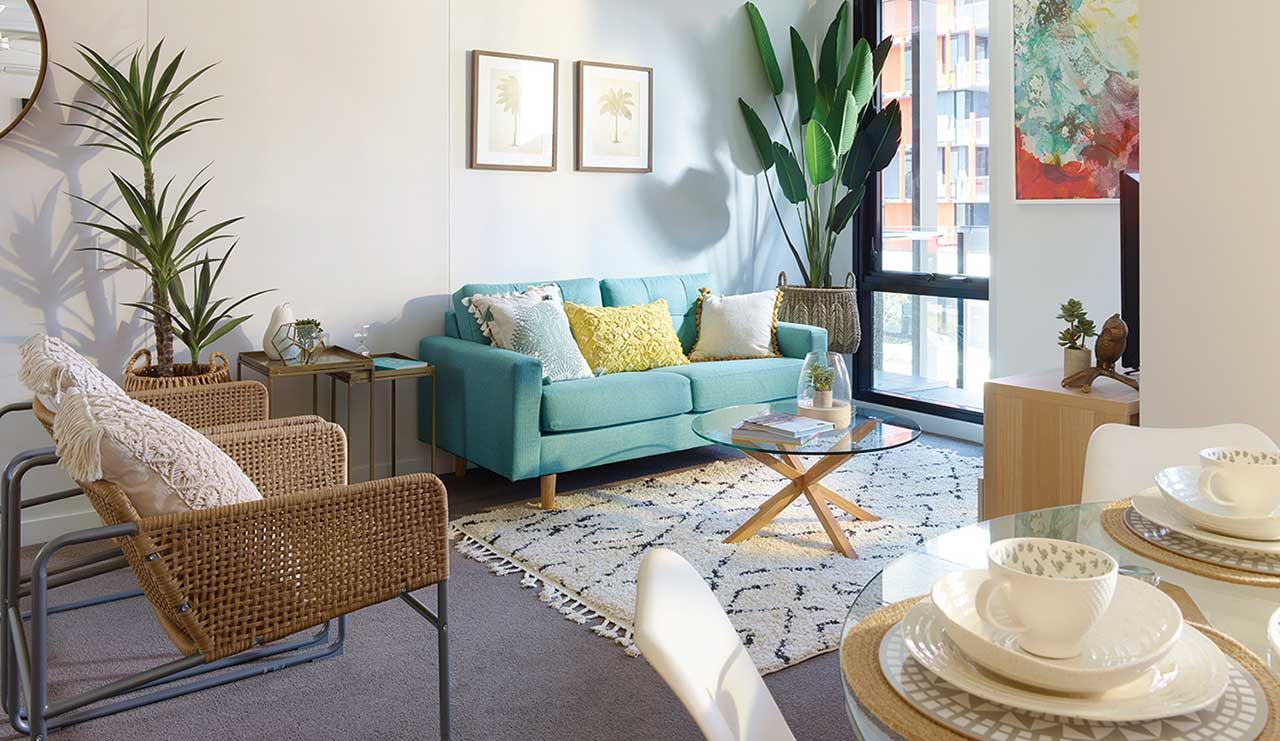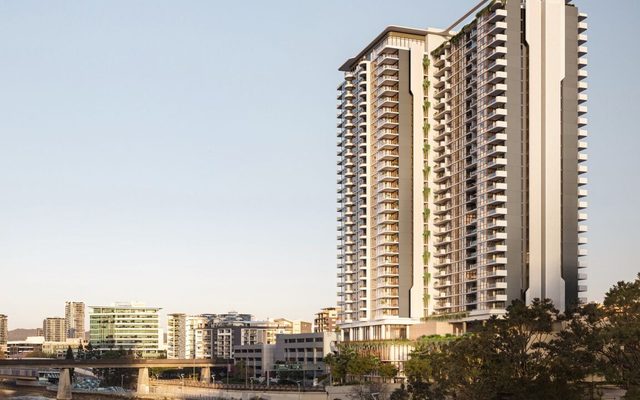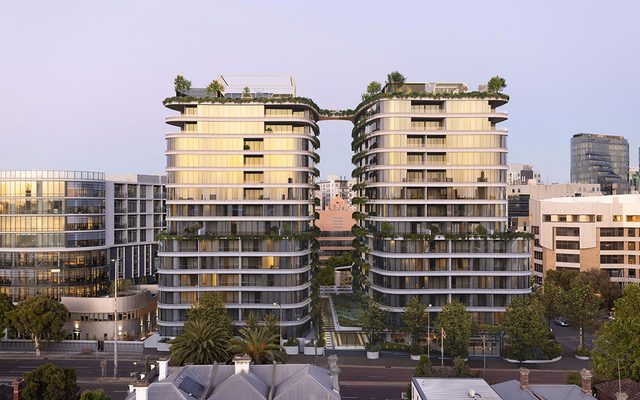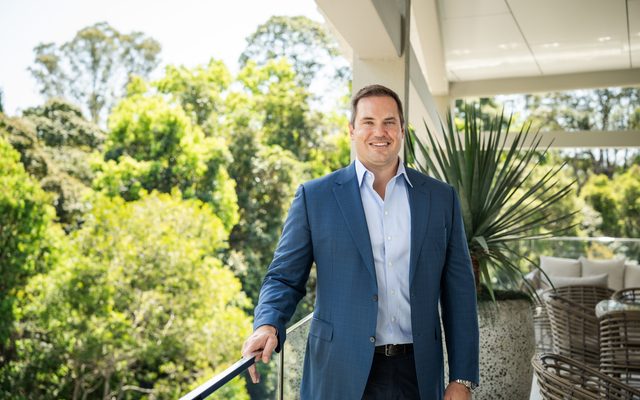This article is from the Australian Property Journal archive
AUSTRALIA’S first build to rent project, the former 2018 Commonwealth Games Athletes’ Village on the Gold Coast, has been launched in a landmark moment for the fledgling sector.
Grocon and UBS Asset Management’s $550 million “Smith Collective” project in Southport will see every one of the 1,251 apartments and townhouses in the former Village offered solely for long-term rent.
Smith Collective features 18 apartment towers, 82 two-storey townhouses that will comprise a total of 532 one-bedroom, one-bathroom apartments – 172 of which are accessible – 637 two-bedroom, two-bathroom apartments, and the three-bedroom, three-bedroom townhouses featuring three bedrooms and three bathrooms, with prices starting from $380 per week.
The dwellings will be released in stages and a total of 2,500 are expected to take up residence in the development.
The build to rent sector, which has become a viable and popular housing and commercial asset class in the United States and Europe, offers residents the chance to secure long-term leases from a developer with more flexible terms.
However, Australia’s sector has thus far suffered from a perceived lack of attractive returns when compared to commercial property, as well as prohibitive measures and few incentives from the federal government. CBRE last year estimated the sector could potentially be worth $300 billion in Australia over the next 20 years.
Smith Collective will also include a 6,280 sqm retail precinct, with plans announced for new Woolworths and BWS stores, and will feature retailers from health and wellness services to home wares, and a dining precinct.
Applications are currently being taken for both the residential and retail components, with the first residents and major retailers expected to start moving in from early 2019
UBS Asset Management executive director Michael Woodrow said international trends showed people were increasingly willing to forgo home ownership in favour of the quality of lifestyle and location offered by precincts such as Smith Collective.
“Research shows that while an increasing number of people want to live where they work, shop and play, they also yearn for the security of long-term leases and ability to add personal touches to their homes.
The Victoria government recently started fast tracking development applications and established an industry working group to explore initiatives to encourage the sector.
The first build to rent approval in the state is for a 60-level apartment block in Southbank on a City Road site acquired by Daniel Grollo’s Grocon from Altus Property in January this year for around $35 million.
A further several applications are being assessed through the fast track process, although a government spokesperson told Australian Property Journal they were unable disclose how many BTR projects are being assessed.
Salta Properties has a build to rent component in its plans for a $330 million Docklands mixed-use project on La Trobe Street, while it will also allocate part of a recently approved project adjacent to its Victoria Gardens shopping centre in Abbotsford to the sector, and has announced a partnership with Abacus Property Group.
That followed Mirvac and the Clean Energy Finance Corporation (CECF) forming a $1 billion build to rent club earlier this year. Mirvac will seed the club with the 258-unit Indigo apartment project at Sydney Olympic Park.
Meanwhile, US build to rent giant Sentinel Real Estate Corporation last week declared Sydney too expensive to undertake projects and will instead assess options in Melbourne after locking in a $200 million commitment from European pension fund. It will target a 5% net yield on cost for its Australia Multifamily Hold Trust.
A recent Allens Linklaters report suggested built to rent needs scale to succeed, which means projects will likely need concessions to density requirements under current planning laws.
The Accelerating build to rent in Australia report said the sector’s scale and capacity for financial return must be established, as well as overcoming tax challenges and finance structuring for it to succeed.
Billionaire developer Harry Triguboff, whose Meriton group’s developments have straddled the line of the build to rent format, has said build to rent wouldn’t work in Australia given the low returns on offer.
Meriton said it would increase its build to rent portfolio to more than 3,500 apartments by adding units in its 237-apartment Signia development at 200 Coward Street in Sydney’s Mascot. The build to rent component would be spread across three six-level buildings at the nearly-completed project, which includes the 179-room Meriton Suites Sydney Airport hotel.
Woodrow expects a range of people will take up residence in Smith Collective, “from academics, students and healthcare workers engaged in the neighbouring tertiary and hospital precincts to young professionals, families and downsizing retirees searching for an active lifestyle”.
“As the most common surname in Australia and one of the 10 most common in the world, ‘Smith’ highlights that the community really is for everyone,” Woodrow said, a choice echoing that made by seminal alternative pop band The Smiths in the 1980s.
JLL has been appointed to manage the site. Community & marketing manager Mel Kite said a signature event program will be rolled out in coming months to give the community a chance to experience Smith Collective for the first time.
“Smith Collective will become an events and entertainment destination for the Gold Coast with regular food festivals, family fun days and live music events,” she said.
Australian Property Journal




